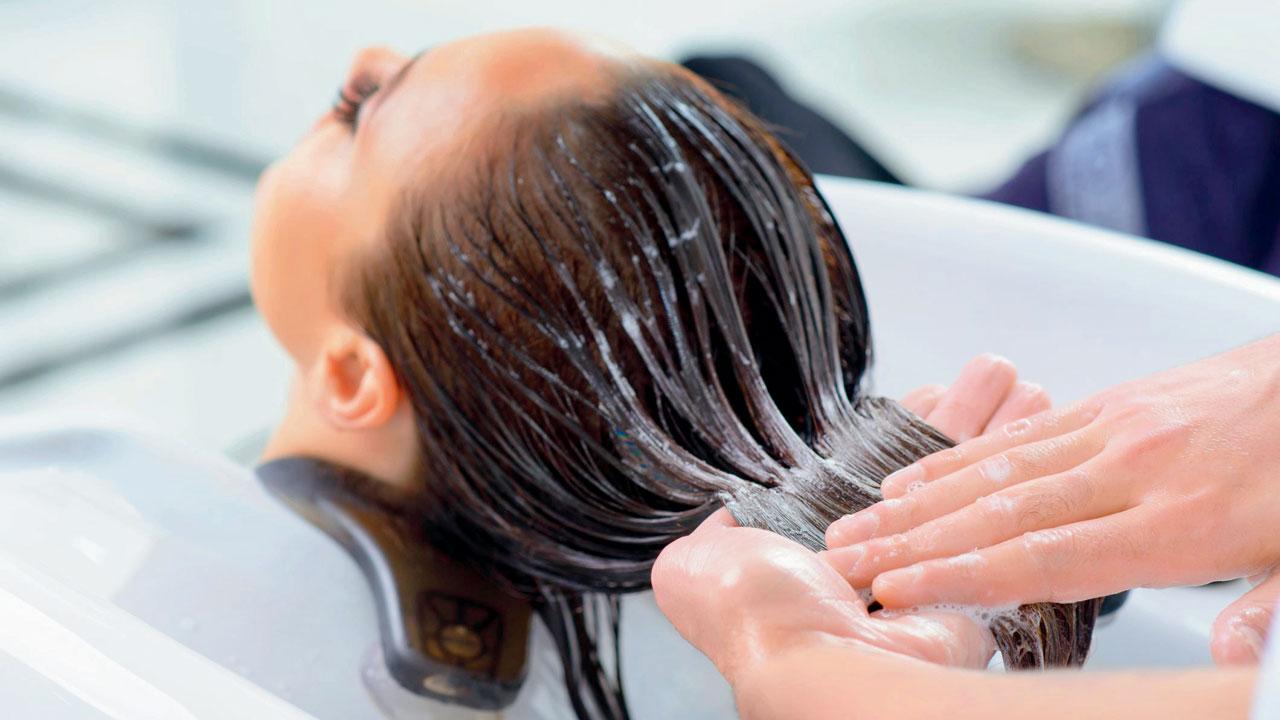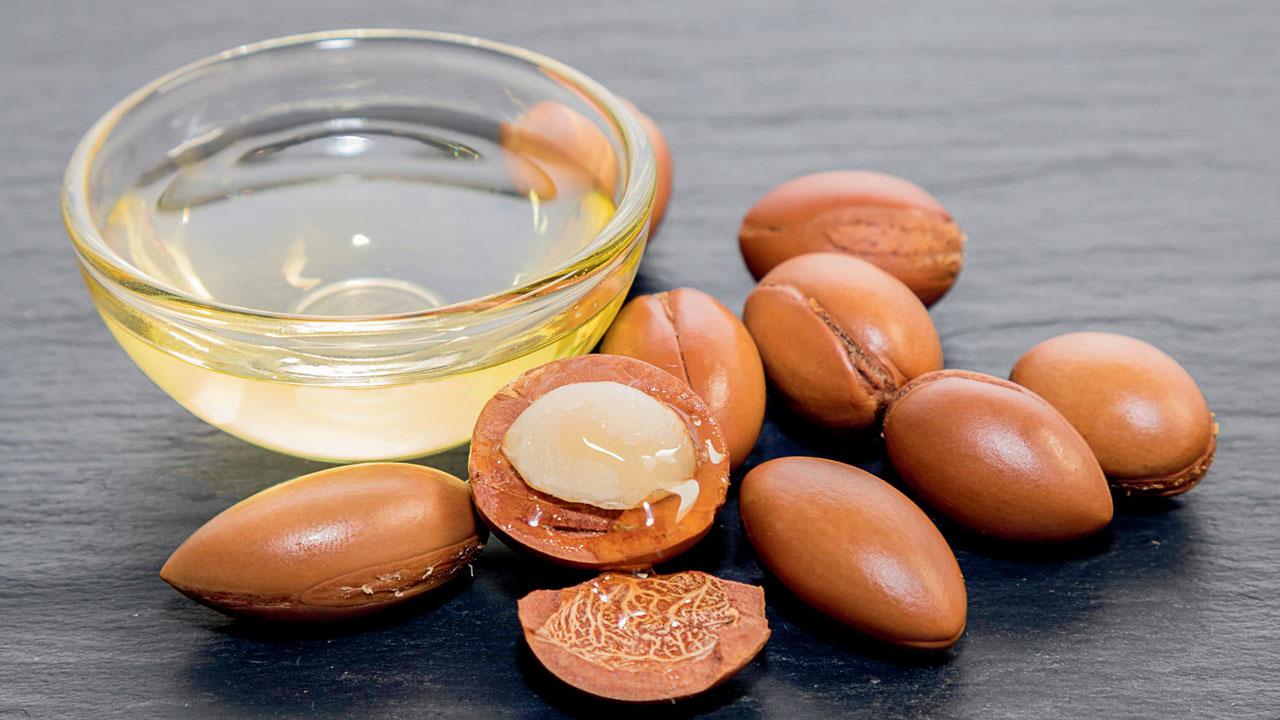Tired of frizzy and itchy hair, thanks to Mumbai’s unforgiving humidity? Learn from the experts on how to strengthen your tresses and optimise your hair care routine with these two essential steps

Minimise dryness by oiling your scalp for at least 15 to 20 minutes before shampooing. Representation Pics
Taming your frizzy hair this monsoon is only one half of the battle won, experts say. The two new kids on the block when it comes to your hair care routine won’t just protect your tresses from the elements but also safeguard your scalp health, an often-overlooked aspect of hair maintenance.
Sunny concerns
Prolonged sun exposure can damage your hair cuticle and cause pigment loss, giving your hair a bleached appearance. Unprotected hair also loses moisture from the shaft, which leads to dry, damaged and brittle ends. In the longer term, this can cause the protein in your hair to degrade, making your hair more prone to breakage. This is where hair SPF can prove to be a real gamechanger, especially for greying or colour-treated hair, which is more prone to damage, says Dr Niketa Sonavane, celebrity dermatologist and founder of Ambrosia Aesthetics.

Weekly hair masks help in boosting hair health
Hair sunscreens, which come in the form of sprays, powders, serums and creams, can also help to prevent colour fading, or your greys from turning yellow due to UV stress. Make sure to layer your hair SPF over well-conditioned hair — choose more hydrating formulas that deposit silicon or silicon substitutes on your strands. For those looking for an all-natural alternative, argan oil has been found to offer similar sun protective benefits. And finally, while hair offers your scalp some protection against the sun, the scalp skin is very vulnerable to sun damage, especially if your hair is thin. In this case, a powder sunscreen that protects your scalp without adding grease can be a great alternative.
“You might think you can skip sunscreen for your hair during the monsoon, but that’s not the case. Even when it’s cloudy and rainy, UV rays can still penetrate through the clouds and cause damage. Plus, the high humidity during the monsoon can make your hair more vulnerable to stress and damage. Using hair sunscreen helps maintain your hair’s health and colour, offering protection even in the rainy season,” Dr Sonavane emphasises.
Exfoliate and grow
“Scalp exfoliation involves the removal of dead skin cells and build-up from the scalp’s surface. It helps to remove dead cells, product residue and oil from the scalp, in turn, unclogging the hair’s follicular units to result in improved absorption of haircare products. Exfoliation also helps to increase blood circulation to the scalp, enhancing the availability of essential nutrients and oxygen — consequently, your hair grows better and faster, and will be healthier,” says Dr Pallavi Sule, dermatologist and aesthetic physician. She adds that regular scalp exfoliation during the monsoon can protect against scalp conditions such as folliculitis, fungal infection or any other kind of inflammation, while also reducing dryness, flaking and dandruff.

The all-natural alternative, argan oil offers sun protective benefits
While massaging your scalp with your fingertips can exfoliate to an extent, experts recommend opting for chemical exfoliants to avoid breakage — look for dedicated products containing ingredients such as salicylic acid, glycolic acid or lactic acid. How often you exfoliate your scalp depends on your scalp type — an oily scalp thrives with weekly exfoliation while a drier scalp responds best to fortnightly treatments, summarises Dr Sonavane, cautioning that over-exfoliating can cause irritation and damage. “Avoid harsh scrubs and follow up with a hydrating conditioner or scalp serum to restore moisture balance,” she signs off.
Hair care, done right

Dr Niketa Sonavane
>> Moisture can lead to fungal infections; so, make sure you dry your hair thoroughly after every wash.
>> Shampoos with antifungal ingredients such as ketoconazole can help prevent scalp infections.
>> Allow your scalp to breathe by avoiding tight hairstyles that can trap moisture.
>> Wash your hair regularly to remove sweat, dirt, and pollutants.
>> Stick to lightweight conditioners to avoid making your hair greasy.
>> Minimise your heat-styling and use of products such as gels, which can make your hair dry and frizzy.
>> Minimise dryness by oiling your scalp for at least 15-20 minutes before shampooing. Warm coconut, olive or almond oil can help arrest dryness and hair fall.
Do not use very thick viscous oils as it is difficult to wash them out and will necessitate the use of harsh cleansers, which damage the hair further.
>> Weekly hair masks, especially homemade varieties, can boost your hair health. These include aloe vera and hibiscus gels, a combination of almond and olive oil with a Vitamin E capsule, or egg white.
 Subscribe today by clicking the link and stay updated with the latest news!" Click here!
Subscribe today by clicking the link and stay updated with the latest news!" Click here!










